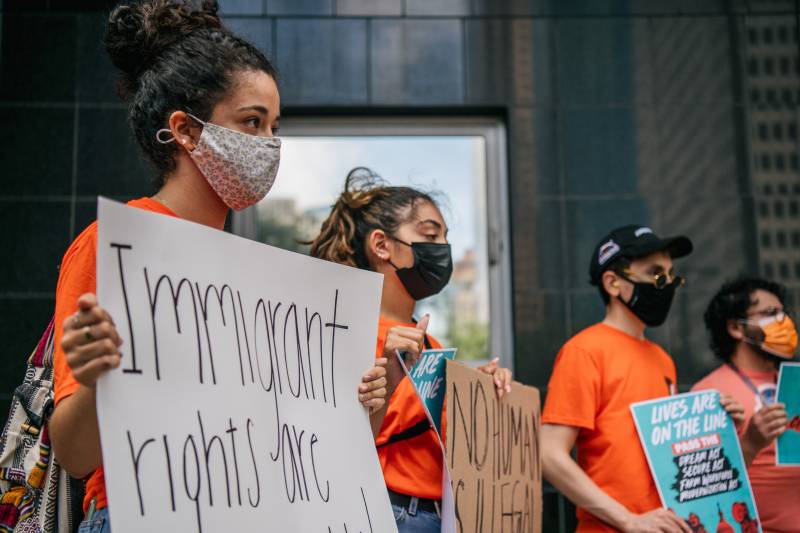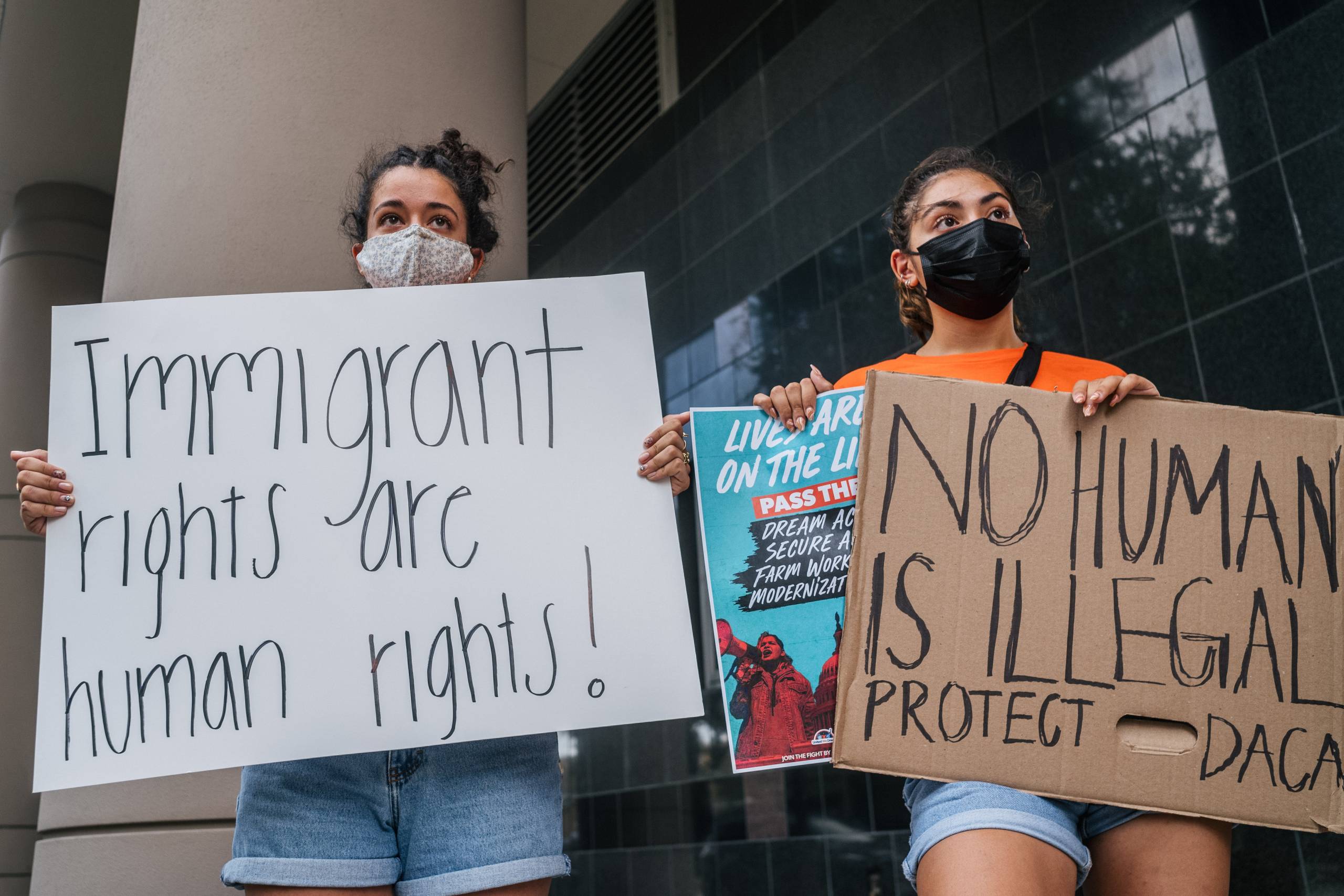Hundreds of thousands of immigrants in the U.S. are in limbo, after U.S. District Judge Andrew Hanen ruled last Friday against the Deferred Action for Childhood Arrivals (DACA) program launched in 2012 by former President Barack Obama. The program provides temporary protection from deportation, and work authorization, to undocumented immigrants who came to the U.S. as children. Hanen, based in Texas, argued that DACA was created illegally.
The decision does not end legal protections for the roughly 616,000 current DACA participants. However, the legal decision does suspend approvals of new applications and leaves the door open for DACA to be terminated in the future.
President Biden has pledged to appeal the ruling and called on Congress to protect so-called Dreamers and create a path to citizenship for millions of people who lack legal status in the United States.
On July 19, KQED Forum host Mina Kim spoke with the following guests to get an overview of the legal decision and what happens next, and also to hear from immigrants who could be affected:
- Tom K. Wong, associate professor of political science and founding director of the U.S. Immigration Policy Center at UC San Diego.
- Dulce García, immigration attorney, executive director of Border Angels and a DACA recipient.
- Denea Joseph, immigrants rights advocate and DACA recipient.
- Ju Hong, DACA recipient and member of Immigrants Rising, an organization that helps undocumented young people achieve educational and career goals.
The following interview has been edited for length and clarity.
Understanding the Ruling
What was the basis Judge Andrew Hanen used in ruling that the creation of DACA was unlawful?
Tom K. Wong: Judge Hanen ruled that DACA is unlawful because the creation of DACA violated the Administrative Procedure Act (APA), which requires public comment before changing policy.
The ruling by Hanen based on the APA is a bit ironic because the last several years of the battle over DACA in the courts saw DACA being preserved mostly because of the APA as well. The Trump administration tried to end (DACA). DACA advocates [then] made a legal argument that the way that the Trump administration tried to end DACA violated the APA. Therefore, district courts all the way up to the Supreme Court said that DACA should stay. And now we have Judge Hanen relying on the same Administrative Procedure Act to essentially rule that DACA is illegal.
What is the immediate impact of this decision?
Tom K. Wong: The immediate impact is already being felt. Those who are first-time applicants, they should have received text notification from USCIS saying that biometrics appointments are now canceled. So part of applying for DACA not only includes a paper application, but once that's received by U.S. Citizenship and Immigration Services (USCIS), then individuals go in for biometrics, for example, to provide their fingerprints. So those appointments are already being canceled.
For the approximately 600,000 active DACA recipients, this means more uncertainty and more limbo. We essentially had four years of uncertainty over DACA under the Trump administration. And this particular ruling — although it does not say that current active DACA recipients will lose their status — adds to the sort of uncertainty that the recipients are living with on a day to day [basis] and makes more vivid the importance of a permanent legislative solution for not just DACA recipients, but for undocumented immigrants more generally.




